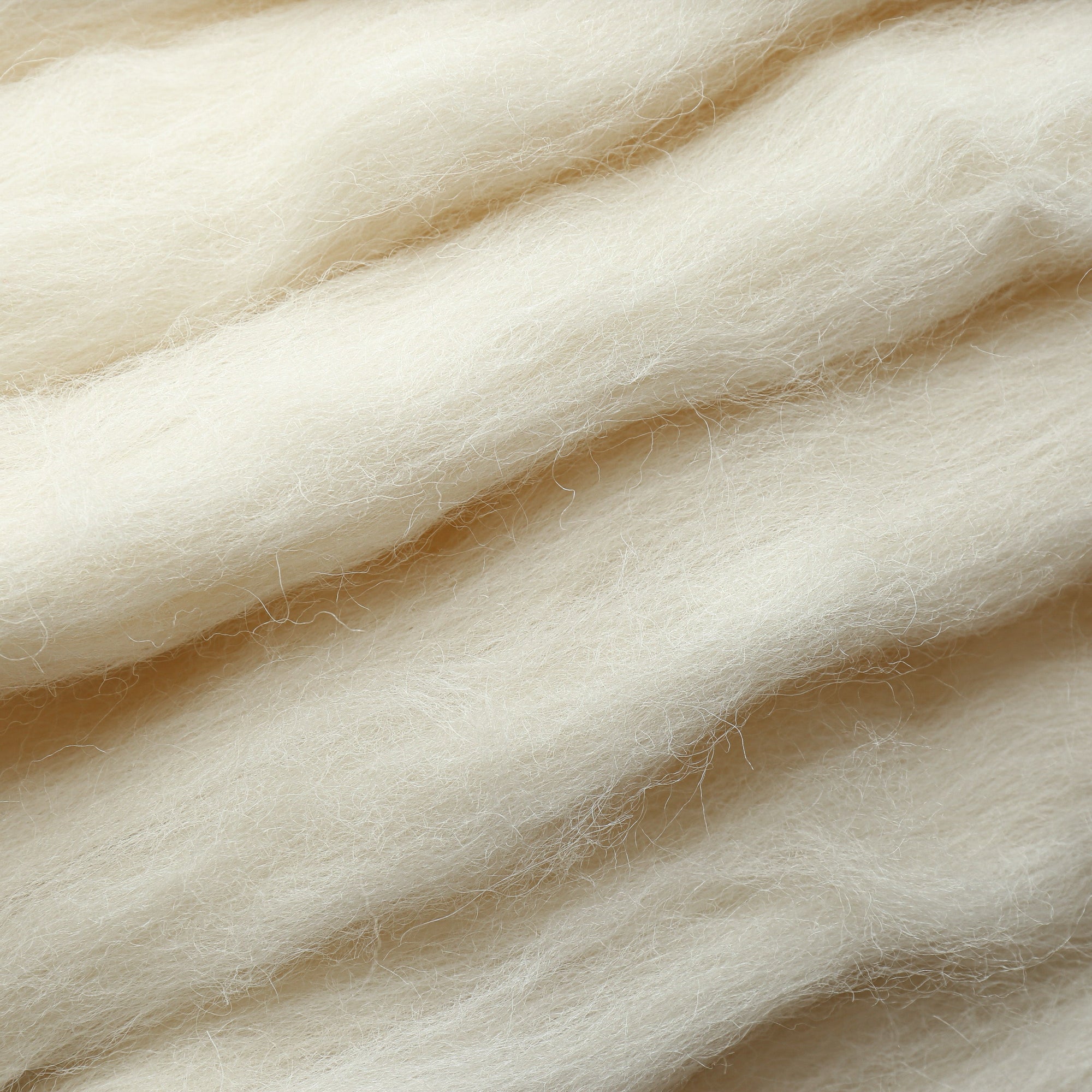Sheep wool

Sheep's wool is a natural, biodegradable animal fiber with temperature-regulating properties. Sourced from certified organic farms, it stands for animal welfare and sustainable processing—ideal for durable, environmentally friendly products.
What is Sheep Wool?
Sheep wool is a natural animal fiber obtained from the fleece of sheep. It is soft, temperature-regulating, and has excellent moisture-wicking properties.
It is used for clothing, bedding, padding, and insulation. Wool is a renewable raw material, biodegradable, and one of the oldest fibers used by humans.
How is Sheep Wool Produced?
Sheep are usually sheared once a year. The raw wool is then cleaned, sorted, and mechanically processed – for example, combed, spun, or quilted. Particularly high-quality wool comes from certified organic animal husbandry (kbT), which ensures animal welfare, organic feed, and the avoidance of harmful chemicals.


Environmental Impact of Sheep Wool
Sheep wool is a renewable resource that can be produced locally and processed with relatively low energy consumption – especially when sourced from kbT-certified farms.
1. Sustainability of Raw Material Sourcing
In certified organic animal husbandry (kbT), animals graze on pastures, receive only organic feed, and are raised under animal-friendly conditions. Mulesing and the use of pesticides are strictly prohibited.
2. Processing and Energy Use
Wool is typically cleaned and processed mechanically with minimal chemical treatment. Regional supply chains reduce transport distances and emissions.
Thanks to its high insulating properties, wool is ideal for sustainable products with long lifespans – from bedding to insulation materials.

3. Durability
Wool is naturally durable and dimensionally stable. It retains its structure for many years and regenerates simply by airing – ideal for long-lasting products.
4. Reusability
Wool can be reused as filling material, insulation, or in recycled textiles. Used wool products can also often be repaired or repurposed.
5. Biodegradability
Pure virgin wool is compostable and decomposes completely under natural conditions – without leaving behind microplastics or harmful substances.
Criticism
Despite its positive properties, sheep wool is not without criticism. Conventional livestock farming may involve poor animal welfare, long transport routes, or the controversial practice of mulesing – a painful procedure primarily used in Australia. Additionally, raw wool cleaning can be water- and energy-intensive if not done to ecological standards.
This makes it all the more important to choose wool from certified organic animal husbandry (kbT), which ensures animal welfare, mulesing-free practices, and gentle processing methods.
Technical Properties of Sheep Wool
| Property | Value |
|---|---|
| Material type | Animal-based natural fiber |
| Density | approx. 1.31 g/cm³ |
| Compressive strength | Low |
| Hardness | Soft to elastic |
| Elasticity | Very good – high resilience |
| Resistance | Dirt-repellent, moisture-regulating |
| Weather resistance | Very good – insulates even when damp |
| Color | White, grey, brown (depending on breed) |
| Workability | Very good – can be combed, felted, and spun |
| Uses | Textiles, mattresses, bedding, insulation |
Sheep Wool at ekomia
At ekomia, we use sheep wool from certified organic animal husbandry (kbT) whenever possible. The sheep live in species-appropriate conditions on pastures, without genetic engineering, pesticides, or unnecessary medication.
The wool used in our mattress covers comes from France – otherwise mostly from Europe – and is processed within the EU. This ensures short transport routes and fair conditions along the entire supply chain.
Sheep wool provides natural comfort in our products: breathable, temperature-regulating and completely free from synthetic additives – ideal as a natural padding in our mattress covers for a dry and balanced sleeping climate.

Questions & answers for Sheep wool
Here we answer some questions about Sheep wool that are frequently asked by other users.
Do you still have any questions?
Do you have any questions or comments on this topic? Write a comment, we will be happy to answer.

